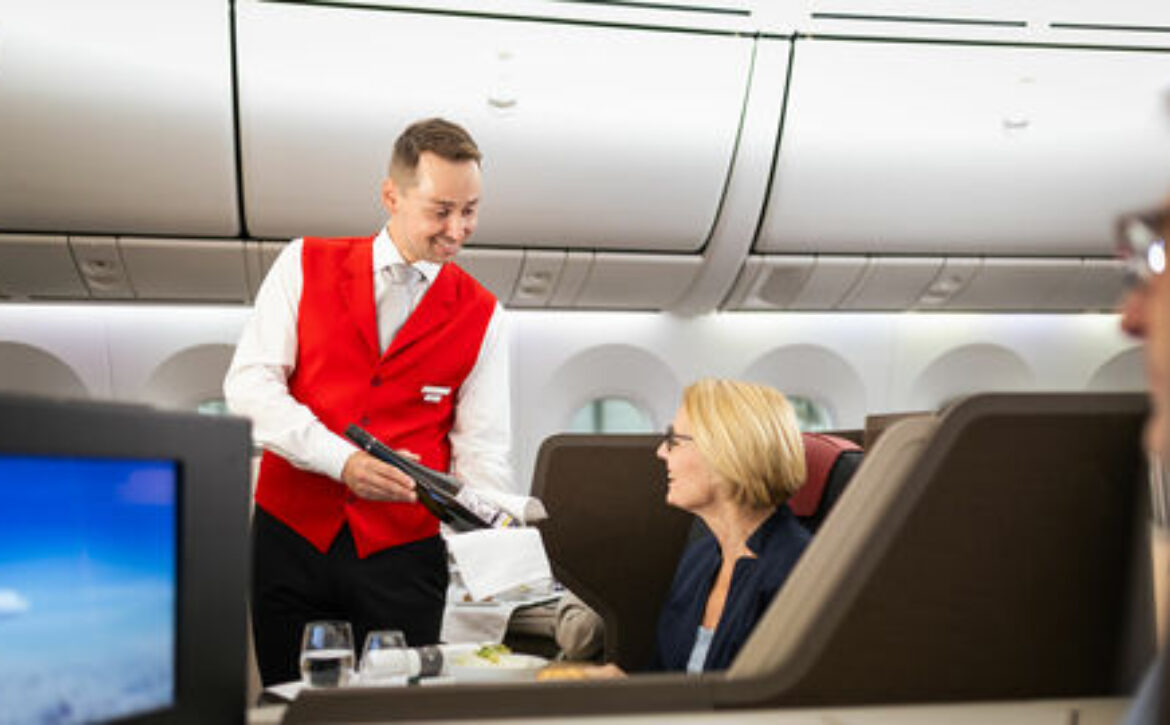
How to Become a Diploma in Air Cabin Crew: Expert Tips
Dreaming of a career that takes you above the clouds? Imagine a job where every day is an adventure, meeting new people and exploring different cultures, all while providing top-notch service.
Becoming a diploma-certified air cabin crew member could be your ticket to this exciting lifestyle. This guide will show you how to achieve that goal, step by step. By the end, you’ll have a clear path to turn your dream into reality.
Stick around to discover the secrets of success in this high-flying profession. You’re just a few steps away from elevating your career to new heights.
Steps To Pursue A Cabin Crew Diploma
Starting a career as a cabin crew member involves completing a diploma program. Enroll in a recognized training institution, where courses cover essential skills like safety, customer service, and emergency procedures. After graduation, apply to airlines for cabin crew positions and begin your journey in the aviation industry.
If you’ve ever dreamed of traveling the world and meeting diverse people, becoming a cabin crew member might be your calling. Achieving a diploma in Air Cabin Crew can be your first step toward turning this dream into reality. Let’s walk through the essential steps you’ll need to take to pursue this exciting career path.
Understanding Eligibility Criteria
Before you dive into your studies, it’s important to ensure you meet the basic requirements. Most programs require you to be at least 18 years old and possess a high school diploma or equivalent. Good communication skills, particularly in English, are also crucial. Physical fitness is often assessed, so maintaining a healthy lifestyle can be beneficial. Some institutions might have height and vision requirements. Always check the specifics of the program you’re interested in.
Choosing The Right Institution
Selecting where to study is a pivotal decision. Look for accredited institutions known for their aviation programs. This ensures the quality of education you’ll receive. Consider factors like location, tuition costs, and facilities. Are there experienced instructors who have worked in the industry? Do they offer practical training on-site or through partnerships with airlines?
Application Process
Applying for a cabin crew diploma involves several steps. Start by gathering necessary documents, such as your educational certificates and identification. Most institutions require a written application. This might include a personal statement outlining why you want to join the program. Tailor your statement to highlight any relevant experiences or skills. Prepare for an interview or assessment, which could be part of the application process. Practice your communication skills and research common interview questions. Remember, confidence is key. Embarking on a journey to become a cabin crew member is both exciting and demanding. Are you ready to take the leap and soar to new heights? With the right preparation and mindset, you can transform your aspirations into a rewarding career.
Essential Skills For Aspiring Cabin Crew
Becoming an air cabin crew member is more than just serving passengers. It requires a set of essential skills. These skills ensure safety, comfort, and a positive experience for travelers. Aspiring cabin crew need to develop specific abilities to succeed in this role. Let’s explore the key skills necessary for a promising career in the skies.
Communication And Interpersonal Skills
Clear communication is vital for cabin crew. They must relay safety instructions effectively. Engaging with passengers requires warmth and clarity. Good listening skills enhance understanding and cooperation. Building rapport is crucial for resolving issues swiftly. A friendly demeanor encourages passengers to seek help.
Crisis Management Abilities
Crisis management is a critical skill for cabin crew. Emergencies require quick thinking and calm actions. Crew members must follow protocols without hesitation. Training helps them handle unexpected situations confidently. The ability to stay composed under pressure ensures passenger safety. Efficient teamwork is necessary during crises.
Cultural Awareness
Cultural awareness enriches the cabin crew experience. Understanding diverse backgrounds fosters respect and harmony. Crew members encounter passengers from varied cultures. Sensitivity to cultural differences is essential. This awareness helps avoid misunderstandings. It creates a welcoming environment for all travelers.
Training And Course Content
Becoming a cabin crew member requires specialized training. Courses cover essential skills needed for the role. The curriculum is designed to prepare students for real-life scenarios. You learn about safety, customer service, and in-flight procedures. This training ensures you are ready to handle any situation.
Safety And Emergency Procedures
Safety is the top priority for airlines. Training includes learning emergency protocols. You practice handling different situations. From fire emergencies to evacuations, every detail matters. This training builds confidence and quick decision-making skills.
Customer Service Excellence
Customer service is crucial for cabin crew. Courses teach effective communication techniques. You learn how to address passenger needs. Handling complaints and providing solutions are key parts of the training. The focus is on creating a positive travel experience.
In-flight Service Training
In-flight service involves catering and hospitality. Training covers serving meals and beverages. You learn how to manage service routines efficiently. Attention to detail is emphasized. This ensures passengers enjoy their journey.
Career Opportunities And Growth
Embarking on a career as a cabin crew member can open doors to a world of exciting opportunities and growth. The aviation industry is not just about flying from one destination to another; it’s about building a dynamic career with endless possibilities. Whether you dream of working with top airlines or exploring alternative roles within the industry, the sky is the limit.
Airlines Hiring Trends
Airlines are constantly on the lookout for enthusiastic cabin crew members to join their teams. With the global travel industry expanding, the demand for skilled professionals is on the rise.
Major airlines often prioritize candidates with a diploma in air cabin crew, as it demonstrates a commitment to the profession. You might find yourself working for renowned airlines that offer excellent benefits and career advancement opportunities.
Consider researching current airline hiring trends to understand what specific skills and qualities are in demand. Are you ready to make yourself a standout candidate?
Advancement In The Aviation Industry
The aviation industry is evolving rapidly, offering various pathways for career advancement. As a cabin crew member, you have the chance to progress to senior roles, such as purser or cabin supervisor.
These roles not only come with increased responsibility but also higher salaries and the opportunity to shape the passenger experience. Continuing education and training can further enhance your career trajectory.
Imagine being recognized as an expert in customer service and safety, leading a team that delivers exceptional journeys. How could advancing your skills today impact your tomorrow?
Alternative Roles For Cabin Crew
While flying is at the heart of a cabin crew career, there are alternative roles worth exploring. Consider positions in ground operations, recruitment, or training, which leverage your unique skill set.
These roles allow you to contribute to the aviation industry while staying grounded. You might find fulfillment in mentoring new recruits or coordinating logistics for upcoming flights.
Have you thought about how your cabin crew experience could open doors to unexpected opportunities in aviation? The possibilities might surprise you!
Tips From Industry Experts
Discover expert advice for earning a diploma in air cabin crew. Focus on gaining customer service skills and safety knowledge. Explore opportunities for hands-on training and internships in the aviation industry.
Embarking on a journey to become a diploma-certified air cabin crew member can be exciting yet challenging. Fortunately, industry experts have shared some valuable tips to help you navigate this path successfully. Whether you’re just starting or looking to enhance your skills, these insights will guide you toward achieving your dream job in the skies.
Networking Strategies
Connecting with professionals in the aviation industry is crucial. Attend industry events and seminars to meet experienced cabin crew members and recruiters. LinkedIn is a powerful tool—make sure your profile is up-to-date and actively engage with industry-related content. Don’t hesitate to ask for informational interviews with people already in the field. This can provide you with insights about the job and help you make informed decisions. Remember, a simple conversation can open doors to unexpected opportunities.
Interview Preparation
Preparing for interviews can make all the difference. Research the airline’s values and mission to understand what they seek in candidates. Practice common interview questions like, “How would you handle a difficult passenger?” to build confidence. During my first interview, I realized the importance of dressing professionally and arriving early. This not only shows respect but also reduces stress. Consider mock interviews with friends or mentors to get constructive feedback.
Maintaining A Professional Image
Your appearance and behavior set the tone in the cabin crew industry. Always present yourself neatly and follow the airline’s grooming standards. This reflects your attention to detail and readiness to represent the airline. Social media can also impact your professional image. Ensure your online presence aligns with the values of the airlines you’re targeting. Would you want a recruiter to see your posts? Incorporating these expert tips into your journey can significantly enhance your chances of success. Are you ready to take the next step toward your dream career?
Challenges Faced By Cabin Crew
Working as a cabin crew member is exciting but challenging. The role requires adaptability and resilience. Cabin crew face various challenges that test their skills and patience. Understanding these challenges helps in preparing for a successful career.
Managing Work-life Balance
Maintaining a healthy work-life balance is tough for cabin crew. Long hours and frequent travel disrupt personal life. Crew members often miss family events and gatherings. Finding time for hobbies becomes difficult. This imbalance can lead to stress and fatigue. Many struggle to keep relationships healthy. Planning and setting boundaries help manage time better.
Dealing With Difficult Passengers
Dealing with difficult passengers is a common challenge. Cabin crew encounter diverse personalities daily. Some passengers are demanding or impatient. Others may be anxious or fearful. Handling such situations requires calm and tact. Good communication skills are vital. Crew members need to de-escalate conflicts quickly. Patience and empathy make a big difference.
Adapting To Irregular Schedules
Irregular schedules pose a significant challenge for cabin crew. Flights can be at any time of the day or night. This unpredictability affects sleep patterns. Adjusting to different time zones is another hurdle. It can lead to physical and mental exhaustion. Crew members must adapt quickly to these changes. Developing a flexible routine is essential.
Frequently Asked Questions
What Qualifications Are Needed For Air Cabin Crew Diploma?
To pursue a diploma in air cabin crew, you’ll generally need a high school diploma or equivalent. Some programs may require proficiency in English and basic computer skills. It’s essential to check specific requirements of the institution offering the diploma for additional prerequisites.
How Long Does It Take To Complete The Diploma?
The duration to complete a diploma in air cabin crew typically ranges from six months to a year. It depends on the institution and curriculum structure. Some programs may offer accelerated courses, allowing students to finish in less time.
Are There Age Restrictions For Cabin Crew Training?
Most air cabin crew training programs have age requirements. Typically, candidates need to be at least 18 years old. Some airlines may have their specific age criteria, so it’s important to verify with the institution or airline.
What Skills Are Taught In Cabin Crew Diploma Programs?
Cabin crew diploma programs cover essential skills like communication, customer service, safety procedures, and emergency response. Training also includes cultural sensitivity, grooming standards, and teamwork. These skills prepare students for various challenges faced during flights.
Conclusion
Becoming a diploma holder in Air Cabin Crew is achievable. Start with research. Find accredited institutions. Enroll in a suitable course. Focus on training and skills development. Communication is key in this field. Learn customer service techniques. Safety procedures are crucial too.
Practice regularly to build confidence. Networking with professionals helps. Seek internship opportunities. Gaining experience strengthens your resume. Stay updated with industry trends. Continuous learning is essential. With dedication and effort, success is within reach. Embark on this exciting journey and enjoy a rewarding career.





